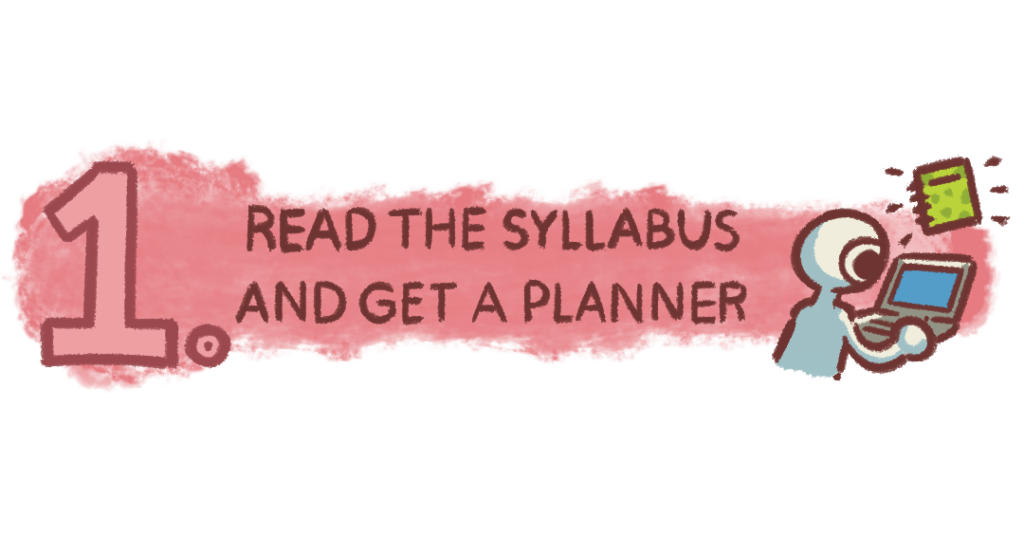Fear the semester no more!
The fall semester might be challenging, but with the tips below, you’ll be ready to conquer the semester.

You must first be mindful of what is expected of you in a course. Read the syllabus carefully to understand what you will learn and what your assignments look like. Write down all the due dates in a planner and organize your time accordingly.
Use the office hours on the syllabus to meet with your professor or TA. You can ask them as many questions as you want, and they will happily help you. The Student Success Center also offers a wide range of learning services that you can find on Concordia’s website. Countless workshops are crafted to help you better navigate your semester.
Volunteering on campus is a rewarding experience that allows you to make connections and improve your confidence. Say you’re in journalism, you could join Concordia’s radio station, but if you are a JMSB student, you could be part of one of the committees at John Molson. Volunteering will allow you to get hands-on experience in your program of studies. You can find all student clubs on Concordia’s website under Student Life and find the best match for you.
Regular physical activity can improve your memory, reduce symptoms of anxiety and depression, and boost your self-confidence. I find exercising to be a form of self-love, because you get to challenge yourself to push through, spend time alone and improve your overall well-being in the long term. In the EV building downtown, Le Gym offers both online and in-person fitness classes. If you are interested in martial arts, aerobics, dance or yoga, among others, now is your time to sign up!
Many students struggle to balance classes, social life, volunteering, working and paying bills. After a hectic day, you might feel a little overwhelmed and drained. It’s essential to spend time looking for a relaxation technique that helps soothe your anxiety. That could be mediating, breathing exercises, or practicing mindfulness. Sleep is another vital aspect—insufficient sleep can affect mood and intensify stress. It is recommended for adults in our age range to get at least seven hours of sleep.
If you have concerns regarding your mental health and need professional help, Concordia offers counseling and psychological services. You can book an appointment online on Concordia’s website under Health & Wellness.
The last thing you want to experience is going through all the course material a night before the due date. Find yourself a study space that will keep you motivated and focused. Concordia’s Webster Library, downtown, is open 24 hours. Make sure to be consistent and plan your study time. Also, turning your phone off for a while can be a game-changer.
Have a successful semester!
ALL GRAPHICS BY KEVEN VAILLANCOURT/ THE CONCORDIAN